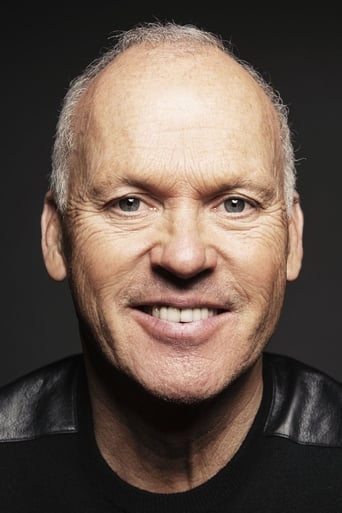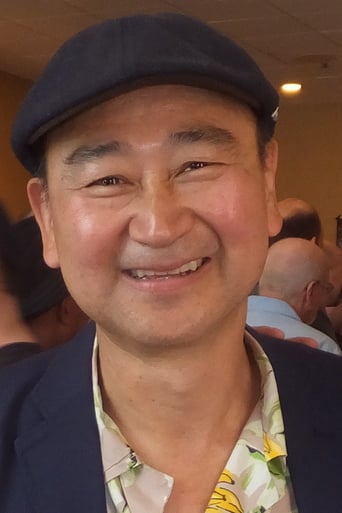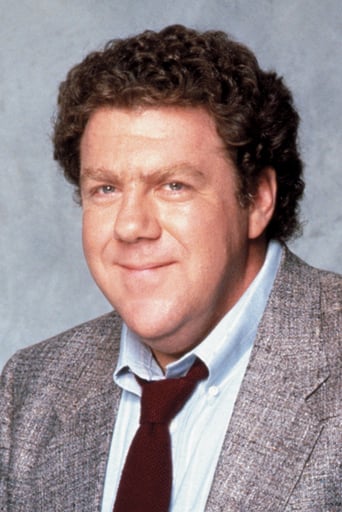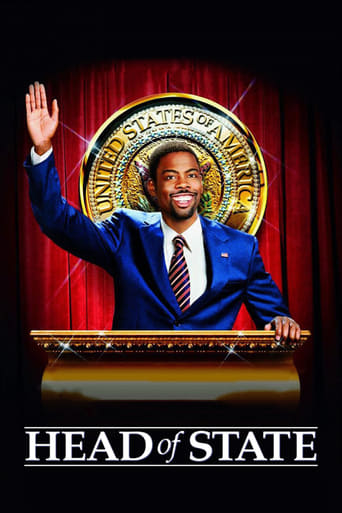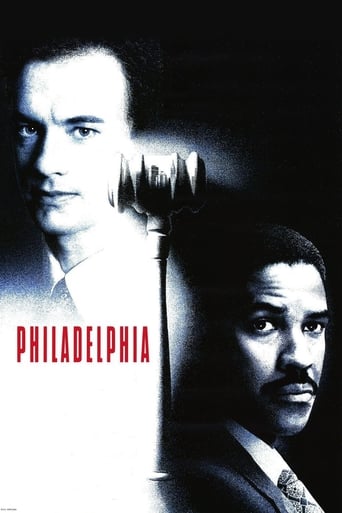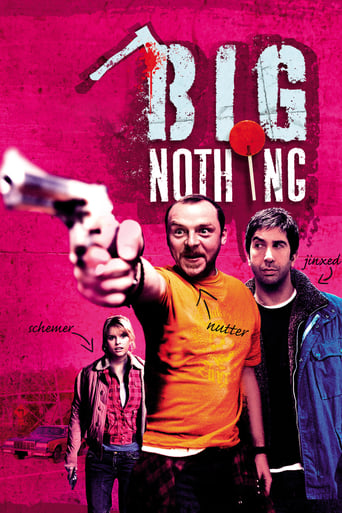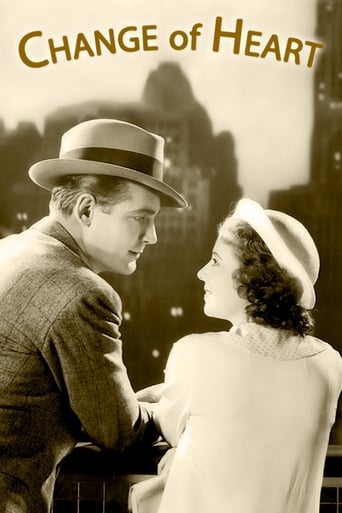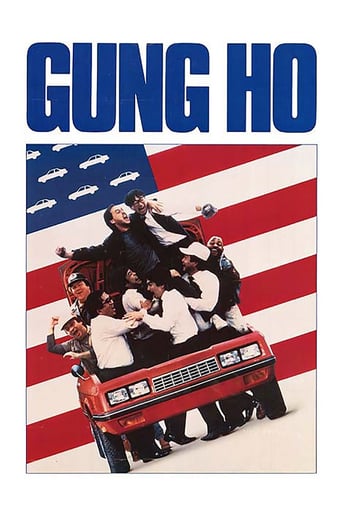
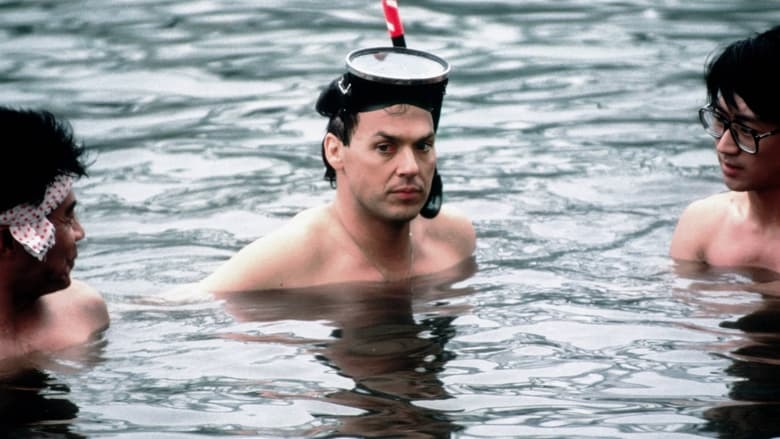
 Watch Now
Watch Now




Gung Ho (1986)
 Watch Now
Watch Now




When a western Pennsylvania auto plant is acquired by a Japanese company, brokering auto worker Hunt Stevenson faces the tricky challenge of mediating the assimilation of two clashing corporate cultures. At one end is the Japanese plant manager and the sycophant who is angling for his position. At the other, a number of disgruntled long-time union members struggle with the new exigencies of Japanese quality control.
Watch Trailer
Cast


Similar titles
Reviews
Best movie of this year hands down!
People are voting emotionally.
It's the kind of movie you'll want to see a second time with someone who hasn't seen it yet, to remember what it was like to watch it for the first time.
There are moments in this movie where the great movie it could've been peek out... They're fleeting, here, but they're worth savoring, and they happen often enough to make it worth your while.
"Thus did a handful of rapacious citizens come to control all that was worth controlling. Honest, industrious citizens were classed as bloodsuckers if they asked to be paid a living wage, and praise was reserved henceforth for those who devised means of getting paid enormously for committing crimes against which no laws had been passed." - Kurt Vonnegut Ron Howard's "Gung Ho" stars Michael Keaton as Hunt Stevenson, a factory worker at an auto plant in Hadleyville, Pennsylvania. When the plant is purchased by Assan Motors, a Japanese company, Hunt becomes a liaison between Japanese bosses and American workers.For most of its running time, "Gung Ho" is a slick, well-shot and funny feature. Here, Japanese capitalism is shown to be dangerously obsessed with production, exploitation and servitude. In contrast, American workers and bosses are shown to be slovenly, lackadaisical and overly individualistic, traits which hamper corporate profits.By the film's end, however, Howard reveals "Gung Ho's" quite sinister message: the worker of tomorrow is better off if he adopts a mixture of Eastern and Western values. Work hard, increase production and put your job first, and mega-corporations won't fire you, abandon you and go seeking cheaper labour elsewhere. But don't work too hard; after-all, an alive worker is a good worker.That this is not only a form of social blackmail, and a false binary – the worker forced to choose between two types of the same exploitation – doesn't occur to Howard. That capitalism's many contradictions means that it must, in aggregate, lead to bankruptcy, debt, unemployment, downsizing, lowered wages and unemployment regardless of "efficiency" or "the behaviour of the worker", doesn't occur to him either. Co-starring Mimi Rogers, the film quite cleverly positions its audience to sympathise with what would otherwise be deemed racial stereotypes.7.5/10 - Worth one viewing.
Gung Ho works more efficiently as a social commentary than it does a comedy. The comedy it provides us is lightweight, and most of the humor is derived from the Japanese stereotypes, sometimes funny, sometimes not. But the social commentary the film gives us is strong and meaningful. It's actually one of the most presentable and worthwhile morals in a comedy I've seen in a while.The story centers around a closed car plant in Hadleyville, Pennsylvania. Before the plant was closed, most of the town's jobs were supplied by the factory and the town's economy nearly depends on it alone. Former head of the factory Hunt Stevenson (portrayed effectively by Michael Keaton), travels all the way to Tokyo to try and strike a deal with Assan Motors Corporation to purchase the plant so it can reopen under new management.Takahara Kazuhiro (Watanabe) is the head of Assan, and has been branded a failure because of his leniency on his workers. The Japanese are taught to be strong, faithful employees who work as a team. When the company fails, they should feel like they've failed. They don't work for the money. They work for the company.Hunt and Takahara strike a deal and the plant reopens under the Japanese management, but the company must adapt to the brand new set of rules. No newspapers in the bathrooms, little to no breaks, etc. This is where the social commentary part of the film comes in. The American workers have more freedom, yet still, most of the time, they work efficiently. The Japanese workers are more faithful to the company, but at the same time are scared to request freedom, luxuries, and independence. Once they agree to a job, they are that job. No excuses.The moral of the story here is that both ways are successful, but both have their own perks. Sometimes, we Americans don't think how lucky we are. Some of the most arbitrary jobs nowadays (IE: an experienced radio personality) get paid six figure salaries. They don't work a full day, yet they make more money than teachers, nurses, etc. Same thing goes with professional athletes. Their average salary could rank in the millions if they're lucky. Granted many of them suffer hard labor, but really, should someone like a baseball player demand a higher salary if he's been benched for a good portion of the season? Going back to the comedy portion, many jokes are directed at the Japanese's expense. The problem here is we are expected to laugh at the Japanese because they are Japanese. There's one part in the film where we are expected to laugh at the Japanese head because he said "looney tunes." Certain things like that almost make the film spiral to a level of immaturity that it should be trying to avoid. There's one central character, a chubby American worker (played by George Wendt) who starts fist fights or threatens them whenever he gets the chance. He is not too charming of a character. He almost reminds me of the character Chris Farley played in Tommy Boy. The difference there was Farley played a likable louse who you couldn't help but side with because of his cheery nature. Here, Wendt's character is so preoccupied with "starting something" he comes off as an unlikable caricature.On a side note, the film's two central leads, Keaton and Watanabe, do a fine job at working past the formula and going an extra mile to make successful characters. Gung Ho isn't perfect, but it does what many comedies don't bother toying with. The eighties were a decade of fun parties and coming of age films. It's nice to see one film dared to voice an opinion on the American/Japanese cultures working out deals and striking fond relationships with one another without mudslinging one side filthy.Starring: Michael Keaton, Gedde Watanabe, George Wendt, Mimi Rogers, John Turturro, Clint Howard, and Michelle Johnson. Directed by: Ron Howard.
I saw this movie again as an assignment for my management class. Were to mainly comment on the different management styles and ideas on quality(of the product). I did rent this one back in the eighties and I remember it to be good(but not great)movie. I've always liked Michael Keaton's style and delivery. He was a perfect fit for the movie.I am surprised to see some of the low ratings for this movie. I grant you yes it's no Oscar winner but it does have decent comedic value. It's more of a subtle comedy rather than a all-out comedy farce. I also find some of those that felt this was an inaccurate film on cultural and business differences. I beg to differ. I grant you again that there are a lot of generalities and dramatizations but then again this is Hollywood film not a documentary. From what I've read about differences between Automakers on both sides of the Pacific at that time many of the principle ideas were accurate for the time.Some of the basic differences were that Japanese workers made to feel as part of the company as a whole. Teamwork was emphasized. They perhaps made the company above all else. Where American workers had more of a management verses labor type of relationship. The individual was more important than the company. I'll probably get some hate email over that comment I'm sure.Another difference was how quality was viewed and whose responsibility it was to fix. In many Japanese plants defects or problems are examined and fixed at the time it is discovered. Rather as one character in the movie put it "it was the dealers(meaning car dealer) problem".Many of these things are probably dated but I'm sure some are still around as many US car makers are still struggling to keep up with the Japanese. If one is more interested in the subject of American, European and Japanese automakers I can recommend a book that studies this subject in more detail and was done around the same time period. The book is called "The machine that changed the world" by James Womack, Daniel Jones and Daniel Roos. It's about a study of automakers during and before the time period that this movie covers. Parts are bit dry but I think you'll find that it backs up much the movie also.
I saw this movie when it was new. Later I rented it in Japan after having been here three years, afraid that I would cringe when I viewed it in the harsh light of my expanded international experience. The movie pleasantly surprised me with how accurately it portrays the culture clash between Japan and Pennsylvania (where I'm from). Not all the stuff is factually spot on, but the tone is perfect.I'm still in Japan many years later, and I continue to enjoy this film for its even-handed treatment of the two sides in the story. Interestingly, although the Japanese-American actors spoke Japanese in the original, the dialog is redubbed in the Japan version to cover up obvious second-language delivery problems.I noticed one reviewer uses this in a Japanese class. I think you can learn more about what to expect from an encounter with Japan by watching this film than by reading any of the "serious" books on the matter (most of which were written in the 80s and financed by propagandizing Japanese companies).Don't be fooled by drag on the average rating caused by one-star reviewers who, among other things, found it implausible that the Japanese would want to build cars in the US. (Of course, the Japanese operate many factories there to be close to the customers and to avoid trade friction.) This is a very warm and funny movie that I would rate higher were it not for a few 80s clichés, like the dancing around to cheesy electronic disco music. Michael Keaton has never been funnier.



